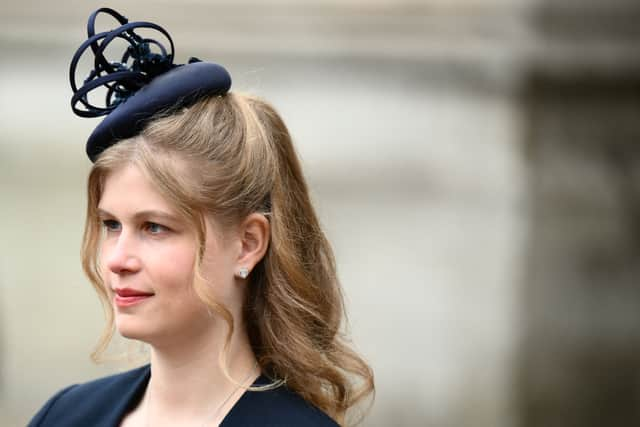Why Lady Louise Windsor won’t be Countess of Wessex; as Lady Nell refers to omission as ‘leapfrogging’
People in this article
This article contains affiliate links. We may earn a small commission on items purchased through this article, but that does not affect our editorial judgement.
and live on Freeview channel 276
There’s been more royal drama this week, but not from the usual suspects; instead, the quarrel this week is between Lady Nell, wife of Sir Edward Nall, 3rd Baronet, and of all people Prince Edward, usually an innocuous member of the royal family that stays out of public scrutiny. Once again, it all boils down to royal protocol and its antiquated nature in the 21st century.
Lady Louise Windsor lays at the heart of the issue; with Prince Edward now bestowed the title of Duke of Edinburgh alongside his wife Sophie, Duchess of Edinburgh, the title of Earl of Wessex has now been bestowed upon their 15-year-old son James. Lady Nell, talking to the Daily Mail, has taken exception to this given that Lady Louise Windsor being the eldest of the two “by rights” should have become Countess of Wessex instead, leading to calls to change the rules of male primogeniture.
Advertisement
Hide AdAdvertisement
Hide Ad"Imagine if you had a school, the boys have lunch first and the girls have whatever’s left over," she told the Daily Mail’s Richard Eden of the existing rules, adding that Lady Louise had been ‘leapfrogged’. The matter is one close to Lady Nell’s heart as the dated rules also have an effect on her daughter, Georgina. "[...] because of this law, she cannot inherit this title and as it stands, when her father dies, the title will go to his brother," she told the Nottingham Post.
"It really comes down to gender equality. Georgie and all children, as well as adults, are taught now to respect both genders yet she is still denied this. It says she is somehow inferior to the males in her family."
But unfortunately for Lady Louise and Georgina, it is once again a long-running royal culture that means, even if the parents wanted to, it would go against the hallowed traditions of royal lineage. Primogeniture is the right, by law or custom, of the firstborn legitimate child to inherit the parent's entire or main estate in preference to shared inheritance among all or some children, any illegitimate child or any collateral relative.


There are two forms of primogeniture however; the most common agnatic primogeniture, meaning inheritance to the firstborn son, and matrilineal primogeniture, which means inheritance to the firstborn daughter. In Lady Louise Windsor’s situation, despite being the eldest daughter, the Duke and Duchess of Edinburgh have instead opted for agnatic primogeniture - and perhaps with some good reason.
Advertisement
Hide AdAdvertisement
Hide AdThe purpose of agnatic primogeniture was to prevent the subdivision of estates, lessening family pressures to sell property, such as if two (or more) children inherit a house and cannot afford to buy out the other. Though perhaps with a modern man such as King Charles III now at the throne, could we see a change in protocol and an adoption of absolute primogeniture?
That form of primogeniture means that sex is irrelevant for inheritance; the oldest surviving child without regard to sex inherits the throne. It’s only been a recent introduction also, as many European royal families before the 1980s kept to the tried-and-tested patriarchal form of inheritance. But many of the other royal families across mainland Europe have adopted this practice, including Monaco, the Netherlands, and Norway.
They deviated from traditional primogeniture in the late 20th or early 21st century by restricting succession to the crown to relatives within a specified degree of kinship to the most recent monarch. It has also been a topic discussed recently in Japan, as Princess Aiko is the only child of Emperor Naruhito. However, the birth in 2006 of Prince Hisahito, a son of Prince Akishino (the younger brother of Naruhito) led to a pause in the debate.
So, despite the feeling that Lady Louise has been "snubbed" by her parents in lieu of her brother, we can once again thank dated royal doctrine for the reason behind her not being given the title Countess of Wessex. As a consolation prize though (if you can call it that), when the Duke of Edinburgh passes away, the Earl of Wessex will not get the title of Duke of Edinburgh - that will instead be returned to the crown.
Comment Guidelines
National World encourages reader discussion on our stories. User feedback, insights and back-and-forth exchanges add a rich layer of context to reporting. Please review our Community Guidelines before commenting.
